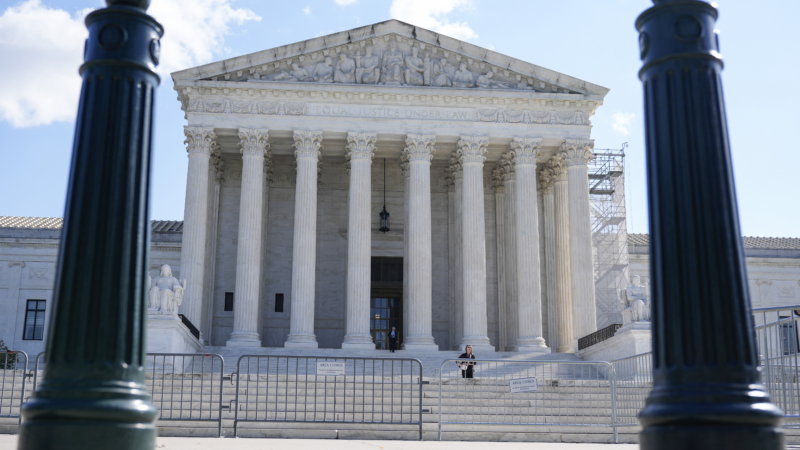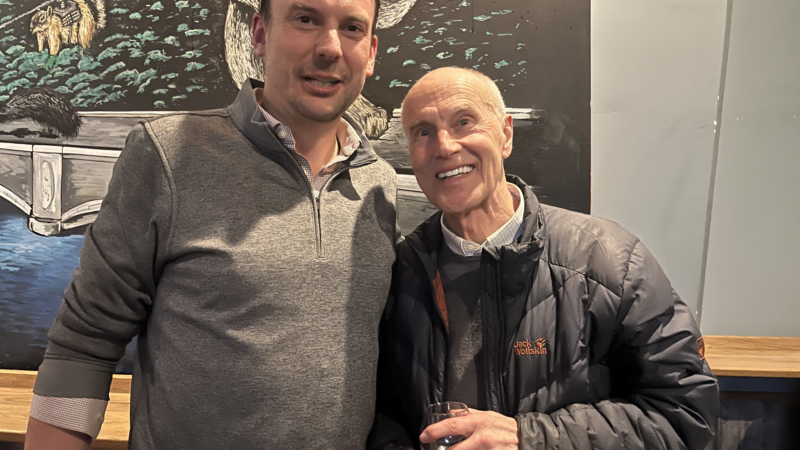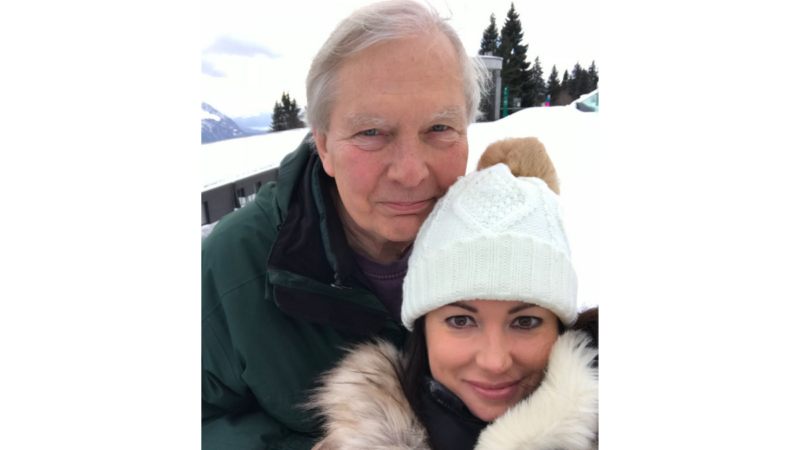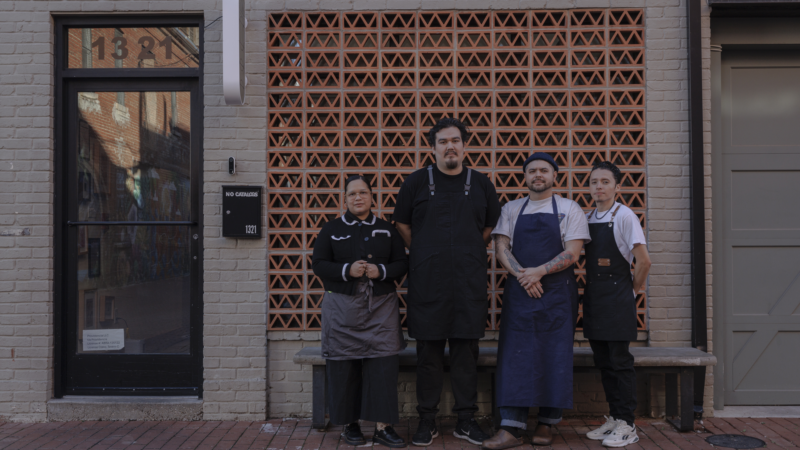College students get emotional about climate change. Some are finding help in class
More than 50% of youth in the United States are very or extremely worried about climate change, according to a recent survey in the scientific journal The Lancet.
The researchers, who surveyed over 15,000 people aged 16–25, also found that more than one in three young people said their feelings about climate change negatively affect their daily lives.
The study adds to a growing area of research that finds that climate change, which is brought on primarily by the burning of fossil fuels, is making young people distressed. Yet experts say there are proven ways to help young people cope with those feelings — and college classrooms could play a key role.
“When any of us talk about climate with students, we can’t just talk about what’s happening in the atmosphere and oceans,” says Jennifer Atkinson, a professor at the University of Washington. “We have to acknowledge and make space for them to talk openly about what’s happening in their own lives and be sensitive and compassionate about that.”
Atkinson studies the emotional and psychological toll of climate change. She also teaches a class on climate grief and eco-anxiety, during which students examine the feelings they have around climate change with their peers. The first time the class was offered in 2017, registration filled overnight, Atkinson says.
While teaching, Atkinson says she keeps in mind that many of her students have lived through floods or escaped wildfires — disasters that have increased in intensity as the world warms — before they even start college, yet often have had few places to find support. In the classroom, students come together, frequently finding solace and understanding in one another, she says.
“Students repeatedly say that the most helpful aspect isn’t anything they hear me say,” says Atkinson. “But rather the experience of being in the room with other people who are experiencing similar feelings and realizing that their emotions are normal and really widespread.”

Making climate change personal in class
Atkinson is one of several professors around the country who has opted to put emotions and solutions at the center of her climate teaching to help students learn how to address their worries about human-driven climate change.
At Cornell University in Ithaca, New York, Michael Hoffmann, who directed the Cornell Institute for Climate Change Solutions and held other university leadership positions before becoming a professor emeritus, introduced a class on food and climate change last year. The point of focusing on food, Hoffmann says, is to teach students how to connect with climate change through their personal experiences.
“When you tell the climate change story, it has to be relevant to people,” says Hoffmann. “I’d argue there isn’t much more anything more relevant than food.”
In 2021, Hoffman co-wrote a book on how climate change could impact beloved foods like coffee, chocolate, and olive oil. He started the class in 2023 after students told him they were feeling dread about what climate change could mean for their futures.
Part of the goal, Hoffmann says, is to provide students with clear steps they can take to address climate change. Evidence suggests that approach could counteract students’ anxieties.
Since 2022, researchers at the Yale Program on Climate Change Communication have published a biannual report on climate change’s influence on the American mind. In the most recent report, released in July, they found most people are able to cope with the stress of climate change. However, about one in 10 say they feel anxious or on edge about global warming several days per week.
Bringing students together to connect about climate change and learn about solutions could help curb that toll, according to lead researcher and program director Anthony Leiserowitz.
“The best antidote to anxiety is action,” says Leiserowitz. “Especially, I would make a plug for action with other people.”
Facing the problem
Students, too, welcome more creative and emotionally-minded climate classes. Three-quarters of those who responded to the recent Lancet survey endorsed climate education and opportunities for discussion and support in academic settings.
At Cornell University, dozens of students have taken Hoffmann’s class. They learn about the global risks to food brought on by warming temperatures and how personal food decisions can play a role in contributing to planet-warming pollution.
Freshman Andrea Kim, who enrolled in the class this semester, welcomes those lessons. For a recent class, students met in a campus dining hall to make their dinner selections. Then they headed to the seminar room next door, where they partnered up to tell each other how the foods on their plate would be impacted by climate change.
After inspecting a classmate’s dinner, Kim explained that the rice, fish, and salad the student had chosen would all be threatened as global temperatures rose. It’s the kind of assignment, she says, that has helped her better understand the dangers of climate change and steps she can take.
“I think it’s good that we’re not just, like, pushing away the problem,” says Kim. “Because it’s still going to be there, whether or not we address it.”
Kim says she sometimes feels stressed about climate change, especially while scrolling through the news on her phone. But she and several other students say the class has helped them navigate those feelings.
Jada Ebron, a senior at Cornell, says she began the class feeling like there wasn’t much she could do about climate change. She says she was frustrated that large companies and governments continue to pollute and that people who are low-income and non-white suffer more as a result.
The class doesn’t shy away from those truths, says Hoffmann. But it aims to show students that their actions aren’t futile either.
To Ebron, that framing resonates.
“It forces you to challenge your beliefs and your ideas about climate change,” says Ebron, who spent part of the summer before her senior year researching how climate change impacts communities of color. “There is something that you can do about it, whether it’s as small as educating yourself or as big as participating in social justice movements.”
Transcript:
AYESHA RASCOE, HOST:
In upstate New York, college students are learning about climate change through food. It’s a way to convey lessons about a subject many students feel anxious about. And as member station WSKG’s Rebecca Redelmeier reports, it’s one way universities are working to teach students about a warming world.
REBECCA REDELMEIER, BYLINE: In a dining hall at Cornell University, freshman Amelia Catala (ph) is considering the pasta with meat sauce.
AMELIA CATALA: I’m actually going to do like this – no, I feel guilty doing this. But I want the meat.
REDELMEIER: But why do you feel guilty?
AMELIA CATALA: Because I just read about it. But it’s so good.
REDELMEIER: Catala has been reading this semester that some foods, like red meat, contribute to human-caused climate change. It’s been the homework for one of her classes, which is all about food and climate change. On this day, the class begins in the dining hall, and then Catala and seven other students migrate next door. Freshman Andrea Kim (ph) asks junior Angelica Malero (ph) what’s on her plate.
ANDREA KIM: Is that eggplant?
ANGELICA MALERO: Eggplant and fish.
KIM: And fish. OK.
REDELMEIER: Kim is now supposed to tell Malero all the ways the foods on her plate will be impacted by climate change.
KIM: Starting with the rice – rice, like many other crops, are on the decline due to climate change because of increased temperatures.
REDELMEIER: The class isn’t about shaming anyone for what they eat. It is about taking a different approach to teaching college students about climate change, one that’s personal, says Professor Michael Hoffman.
MICHAEL HOFFMAN: When you tell the climate change story, it has to be relevant to people. And I’d argue there isn’t anything more relevant than food.
REDELMEIER: In 2021, Hoffman co-wrote a book on how climate change could impact beloved foods, like coffee, chocolate and olive oil. Last year, he started this class, after students told him they were feeling dread about what climate change could mean for their futures.
HOFFMAN: When I would ask that question – how do you feel about your future, given climate change? – and, you know, the students just went on about uncertain, hopeless, I just thought, OK, they need some help.
REDELMEIER: But what actually helps students who are feeling scared or anxious about climate change? It’s a question some universities around the country are considering, as more research finds that many young people experience distress due to climate change. To Hoffman, the answer is providing some real steps students can take.
HOFFMAN: Because I think it’s so important, when we do talk about climate change, to provide solutions, the answers. What can I do?
REDELMEIER: Other professors are also rethinking how they teach climate issues, like Jennifer Atkinson at the University of Washington.
JENNIFER ATKINSON: When any of us talk about climate with students, we can’t just talk about what’s happening in the atmosphere and oceans.
REDELMEIER: Atkinson teaches an undergraduate seminar on the emotional toll of climate change. She keeps in mind that her students may have lived through floods or escaped wildfires before they even started college.
ATKINSON: We have to acknowledge and make space for them to talk openly about what’s happening in their own lives, and be sensitive and compassionate about that.
REDELMEIER: Researchers at Yale University’s program on climate change communication have found that most people are able to cope with the stress of climate change. But about 1 in 10 say they feel anxious or on edge about global warming several days per week. There is something that can help, though, says lead researcher Anthony Leiserowitz.
ANTHONY LEISEROWITZ: The best antidote to anxiety is action. And especially I would make a plug for action with other people.
REDELMEIER: That’s where Leiserowitz says universities can play a role – teach students about action they can take.
LEISEROWITZ: Because when you don’t have a sense of what you can do, then most people’s natural tendency is to say, well, then I’m going to just hide my head and not think about it.
REDELMEIER: That’s why courses like the food and climate class at Cornell could really help. Students learn what’s at stake and what they can do – eat less meat, less dairy – which will contribute less to climate change. Cornell freshman Andrea Kim says she likes learning about solutions. And she’s found her own ways of coping with the stress she sometimes feels in a warming world.
KIM: When we, like, start doomscrolling and just seeing, like, these terrible news articles about how bad it’s getting, it can be a little sad. But you just have to put your phone down for a little while and, yeah, try to cheer up.
REDELMEIER: Kim says she usually cheers up by going outside. She says looking at the scenery on campus helps get her out of her head. For NPR News, I’m Rebecca Redelmeier, in Ithaca.
Review by Senate Democrats finds more unreported luxury trips by Clarence Thomas
A report by Democrats on the Judiciary Committee found additional travel taken in 2021 by Thomas but not reported on his annual financial disclosure, including trips on private jets and a yacht trip.
Where did Barry Jenkins feel safe as a kid? Atop a tree
Director Barry Jenkins is best known for films like "Moonlight" and "If Beale Street Could Talk." On Wild Card, he opens up about where he felt the safest as a kid.
Israeli strikes across Gaza kill at least 20, including five children
Israeli strikes across the Gaza Strip overnight and into Sunday killed at least 20 people, including five children, Palestinian medical officials said.
I discovered one way to fight loneliness: The Germans call it a Stammtisch
Modern life can be lonely. Some are looking to an old German tradition – of drinking and conversation – to deepen connection through regular meetups.
This Christmas I’ll be grieving. Here’s how I’ll be finding joy.
Since her husband's death, newscaster Windsor Johnston has been looking for ways to recapture joy and continue her healing journey — one that's taken her to a place she'd never expected.
On tap for the holidays: A blend of multicultural drink traditions and fond memories
For this year's All Things Considered holiday cocktail interview, we visited Providencia in Washington, D.C., a bar that brings its owners' personal stories to life.





